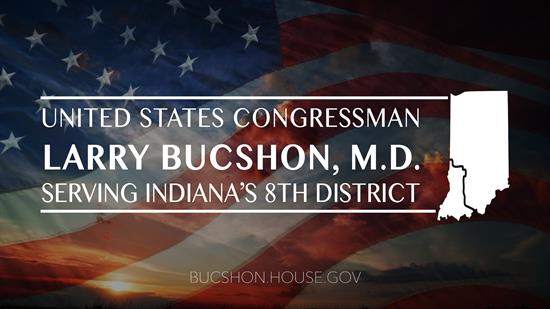Press Releases
Dr. Bucshon Votes Against House Democrats’ Government Takeover of the Internet
Washington,
April 10, 2019
Tags:
Government Regulations
“In 2015, under the Obama Administration, the Federal Communications Commission (FCC) abandoned the light-touch regulatory approach to internet governance that both parties had previously pursued for almost two decades. Instead of working toward 21st century solutions to moderate 21st century high tech companies, they opted for an antiquated regulatory scheme designed for the monopoly telephone carriers of the 1930s. This caused investment in internet services to fall by 5.6%, or $3.6 billion. “It is absolutely critical in a world and economy that is increasingly dependent on broadband internet access that we close the digital divide– especially for those who live in rural America. That is why in 2017, under Chairman Ajit Pai’s leadership, the FCC adopted a rule restoring the light-touch approach to internet regulation, clearing the way for further innovation and investment that ensures a vibrant and competitive marketplace exists. “House Democrats are now trying to reverse the ruling of Chairman Pai’s approach and to bring back the same heavy-handed, antiquated regulations that caused the growth of the internet to slow down in the first place – all in the name of protecting consumers. However, you don’t need to impose the heavy hand of Washington to protect consumers. The best way to protect consumers is through a robust and innovative marketplace that gives consumers ample choice, and that is why I support several commonsense measures to put in place consumer protections that will guarantee we continue to have free and open internet. The internet is not in need of saving, and contrary to its name, the Save the Internet Act would not rescue the internet. Instead, it would hand over control of the internet to Washington bureaucrats and only further exacerbate the digital divide.” Background Alternative legislation co-sponsored by Dr. Bucshon: H.R. 1101, prohibiting blocking, throttling, and paid prioritization, Rep. Greg Walden’s (R-OR) bill codifies the FCC’s protections, so they aren’t subject to changing administrations. · The bill prohibits blocking, throttling, and paid prioritization, and requires that Internet Service Providers (ISP’s) be transparent in their network management practices and prices. H.R. 1006, the Open Internet Act, Rep. Bob Latta’s (R-OH) bill is drawn directly from former Energy and Commerce Chairman Henry Waxman’s (D-CA) proposal from 2010. · This bill would specifically prohibit blocking lawful content, applications, or services, or prohibit the use of non-harmful devices; and unjustly or unreasonably discriminate in transmitting lawful traffic. H.R. 1096, the Promoting Internet Freedom and Innovation Act, Rep. Cathy McMorris Rodger’s (R-WA) bill, is drawn directly from the Washington state net neutrality rules. · Democrat Gov. Jay Inslee said this legislation ensures consumers “will be protected from throttling, from fast lanes, and they will be protected in preserving an open and accessible internet.” |


